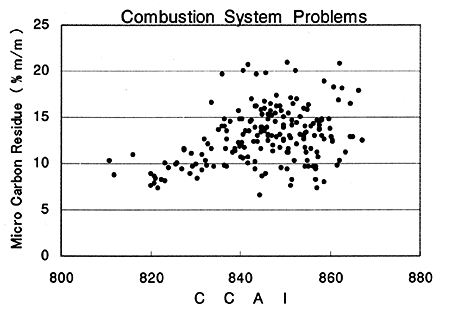
Fig.2 CCAI and MCR
(Combustion system problem)
Comparing those two graphs, it is concluded that fuel oil containing more than 18% of MCR are fatal for engine and/or combustion system.
2.2 PROBLEMS OF PRE-TREATMENT SYSTEM
Figure 3 and 4 show the relationship between CCAI and TSE (Total Sediment Existent).
The former indicates a distribution of normal fuel oil and the latter for fuel oil that caused pre-treatment system troubles.
Fuel oils that have more than 0.1% mm of TSE are fatal for the pre-treatment system.
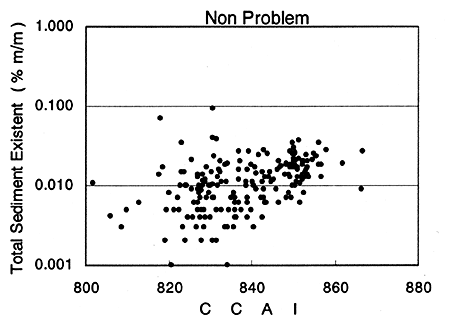
Fig.3 CCAI and TSE (non problem)
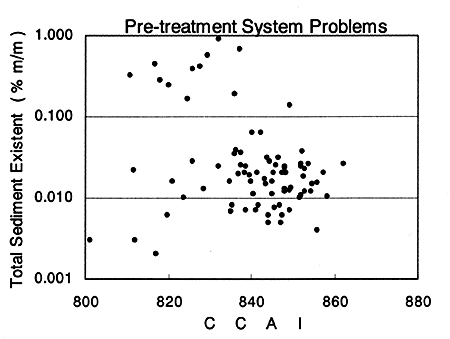
Fig.4 CCAI and TSE
(Pre-treatment system problem)
2.3 DIFFERENTIAL THERMAL ANALYSIS (TG-DTA)
Thermogravimetric-Differential Thermal Analysis has been applied in order to examine a combustion characteristic of fuel oil. This method uses Differential Thermo-balance which measures weight change (TG) and heat flow (DTA) of sample under controlled temperature.
Figure 5 shows the diagram of Differential Thermo-balance system. The sample and the standard sample are placed in containers on the holders with thermocouple. Temperature of standard sample is controlled by infrared ramps. And the changes of temperature and weight (TG) of samples and difference of thermoelectromotive force between thermocouples (DTA) are recorded.
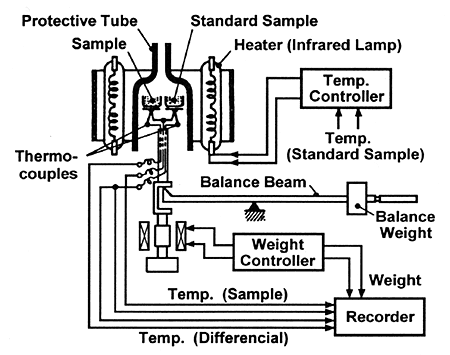
Fig.5 Differential Thermo-Balance ( TG-DTA )
Recently we experienced abnormal wear of cylinder liners and piston rings and sampled the fuel oil, which was bunkered at East Coast of North America. The result of analysis is shown in the Figure 6 (rising rate of temperature: 20 K/min, atmosphere: air, flow rate of atmosphere: 100 ml/min).
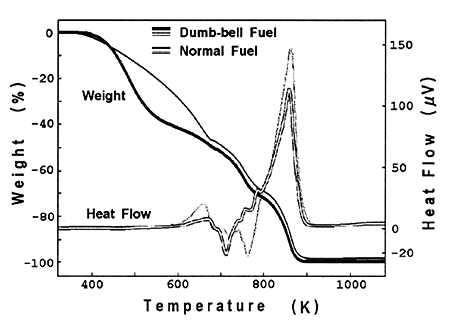
Fig.6 Results of TG-DTA Analysis
BACK CONTENTS NEXT